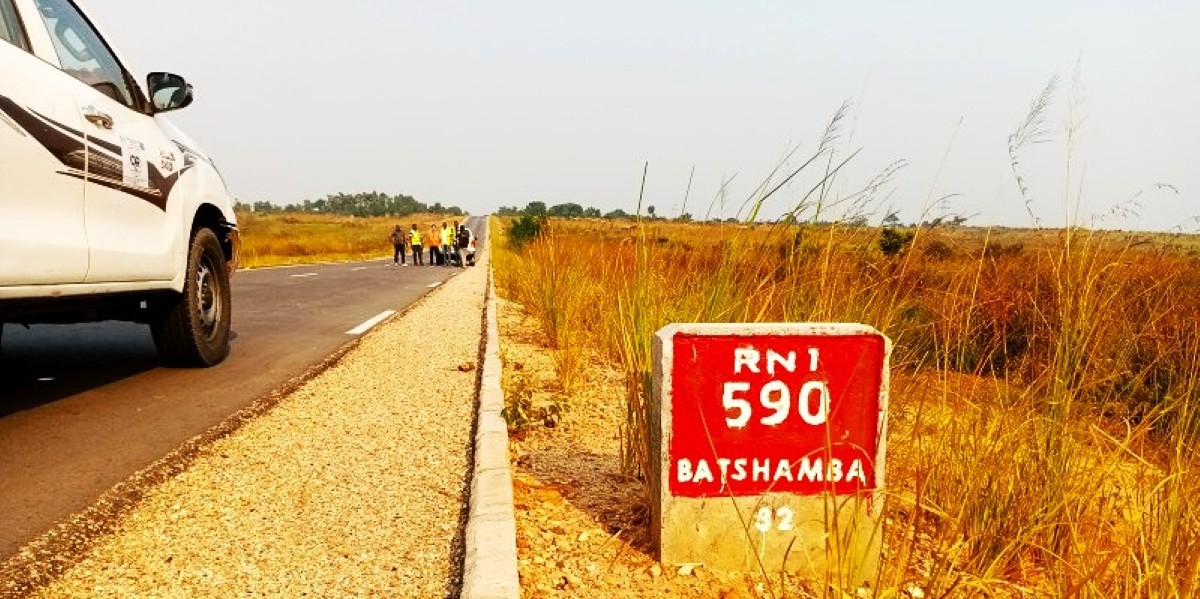Roads in Kenge, Kikwit, Tshikapa, Kamuensha, and Mbuji-Mayi have been completely rehabilitated, new stretches of road built, and urban roads modernized.
Numerous examples of socioeconomic infrastructure have also benefited from the financial support of the African Development Bank Group, helping to transform the daily lives of hundreds of thousands of Congolese.
A multi-sectoral mission from the government of the Democratic Republic of Congo (DRC) and the African Development Bank witnessed the impact of these investments during field visits to the five municipalities in western DRC in May 2025.
The three projects, financed by the Bank, focus on rehabilitating road infrastructure, enhancing air safety, and improving access to basic social services.
Health centres, hydraulic structures equipped with modern technology, provincial rural markets, schools, a refurbished runway in Mbuji-Mayi, and air safety equipment meeting international standards are just some of the successes the joint mission was able to witness.
“The mission measured the concrete impact of the projects supported by the Bank in Kasai. From roads to social infrastructure and air safety, progress is visible and is transforming the lives of the population,” said Mohamed Coulibaly, Country Programme Manager in charge of the Bank Group’s Office in the Democratic Republic of Congo.
The first stage of the mission concerned the project to rehabilitate the Kinshasa to Ndjili-Batshamba section of national road no. 1, involving the rehabilitation of 622 kilometres of road between Kinshasa and Batshamba via Kenge and Kikwit, a key route in the Congolese road network.
In the past, this strategic corridor was virtually impassable due to the advanced deterioration of the road surface and a series of sinkholes, and took several days or in some cases weeks, to drive along.
With USD 68.57 million in funding from the African Development Bank, the work carried out means the route can be travelled safely in less than a day.
This improves connectivity between the capital and the provinces of Mai-Ndombe, Kwango, Kwilu and Kasaï.
“In addition to asphalting the road, the Bank has financed the construction and equipping of schools, health centres, boreholes, rural markets, social reintegration centres, administrative buildings, a modern market and weigh stations along the route, as well as the rehabilitation of over 700 kilometres of rural roads,” explains Jean Luemba, the RN1 project coordinator.
The Bank has also provided substantial logistical support (vehicles and IT equipment) to the state structures involved in the projects.
Ultimately, this initiative will benefit over 19 million people by facilitating access to markets, improving the availability of agricultural products and food security, and supporting mobility and economic activities.
The second phase of the Project for the Reinforcement of Socioeconomic Infrastructure in the Central Region (PRISE II) entails the construction work on schools, health centres, public latrines, and rural markets has been completed or is nearing completion.
The execution rate is estimated at 75 Percent. As for the 41 schools under construction, most are ready for handover. The same applies to the 40 health centres, whose buildings have been completed. Public markets are also making good progress, with several structures already operational.
The project has also planned community awareness-raising and vocational training activities, including training young people in plumbing, promoting hygiene and local water governance and integrating geophysical studies into the Drinking Water Supply and Sanitation Programme.
The project’s aim is to reach over 870,000 direct beneficiaries in 10 provinces, by improving access rates to water, sanitation, health and education.

